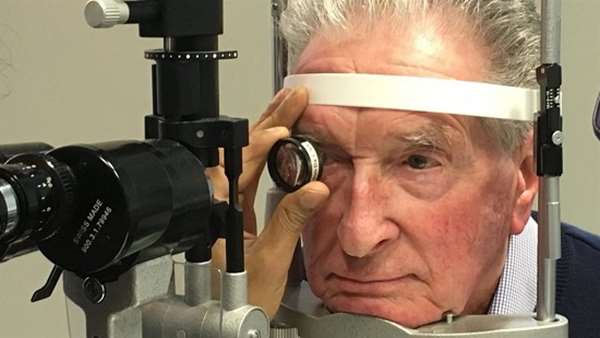Doctors Have Restored The Sight of Two People in a Monumental World First
British physicians have successfully used stem cells to repair the degenerating tissue at the back of two patients eyes in a world first, effectively reversing their diminishing eyesight.
Doctors Have Restored The Sight of Two People in a Monumental World First
British physicians have successfully used stem cells to repair the degenerating tissue at the back of two patients" eyes in a world first, effectively reversing their diminishing eyesight.
It"s now hoped that an affordable form of the therapy could be made available in the UK within the next five years, opening the way for more than half a million people in the UK and millions more around the globe to have their impaired vision restored.
The two elderly patients reported on in a recently published case study suffered from a condition called macular degeneration – an age-related condition of the retina that is responsible for roughly half of all cases blindness.
In simple terms, the disease involves a breakdown of the layer of cells behind the light-sensitive rods and cones forming the eye"s retina.
This layer of tissue, called the retinal pigment epithelium, helps transport nutrients into the retina"s outer layer and remove waste; its loss leads to a build-up of materials that slowly kill the surrounding cells.
As time passes, this steady degeneration can gradually widen into a blind spot that interferes with a person"s vision.
The fundamental causes of the cell layer"s failure aren"t all that clear, yet risk of getting the condition increases significantly in those over the age of 50.
Although small, the blind spots" position fall on a tiny zone called the macula – an area of tissue that captures most of the detail of whatever it is we"re focussing on.
That rules out reading, watching television, or even recognising faces.
For 86 year old Douglas Waters, one of the therapy"s recipients, the condition meant losing half of his field of sight.
"In the months before the operation my sight was really poor and I couldn"t see anything out of my right eye," Waters told BBC health and science correspondent, James Gallagher.
Treatments for the most severe forms of macular degeneration exist, but can involve frequent injections into the eye, which we can all agree isn"t exactly a pleasant concept.
Waters was one of two patients to undergo surgery a year ago, where a patch of specially designed embryonic engineered stem cells just 40 microns thick, and 4 by 6 millimetres wide was inserted into their retina.
These cells were not only grown to replicate the diverse cells in the retinal pigment epithelium, they were coated with a synthetic compound that helped them stick in place.
A 12 month follow-up case study on the patients" progress reported both of the patients" showed significant improvements.
While the transplanted cells weren"t a perfect replacement, with some small signs of rejection causing an uneven spread of cells, they appeared to remain relatively healthy.
Both patients also reported improvements in their vision, which is really where it matters.
"It"s brilliant what the team have done and I feel so lucky to have been given my sight back," Waters said to the BBC, claiming he could now read the newspaper.
Further monitoring against rejection and cancerous changes in the cells will also ensure the procedure is as safe and effective as possible.
The research team has permission in this stage of clinical trials to test the procedure on a further eight recipients.
If all continues to go well, the procedure could soon be made more widely available.
"We hope this will lead to an affordable "off-the-shelf" therapy that could be made available to NHS patients within the next five years," ophthalmologist Pete Coffey from the University College London"s Institute of Ophthalmology told the BBC.
Time will tell what this means for the some 100 million people worldwide facing a future with age-related macular degeneration.
Another promising therapy tested last year used an engineered virus injected into the eye to slow and even reverse the effects of the condition, but appeared to be impeded in some by the patient"s immunity.
While the procedure is more invasive, stem cells could be the way to go.
We can only hope that Doug Waters is the first of many to get a new lease on vision.
This research was published in Nature Biotechnology.





ارسال به دوستان